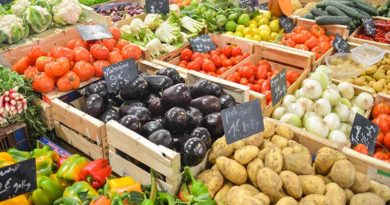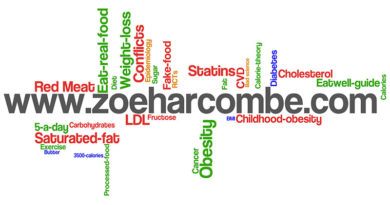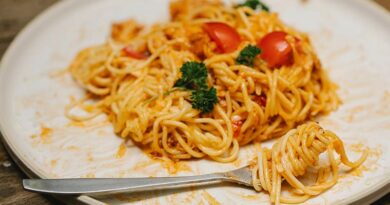Review of 2017
These are the topics that I’ve researched and blogged about this year:
January
The Case Against Sugar. A review of Gary Taubes’ book.
The NHS – What’s The Future? The founding principles of the UK National Health Service and the points that I made in an interview to celebrate the 40th anniversary of the NHS.
The Stellenbosch response. The Naude et al paper (2014) turned out to be critical in the Professor Tim Noakes nutrition hearing. Tim and I dissected the paper (published in SAMJ) and this article covers the response (or lack of!) from the authors.
Clean Eating – Horizon. My view of a Horizon programme attacking real foodies.
Will Trump tackle obesity? Is Trump likely to set obesity as one of his personal or presidential issues?
Palm oil is not saturated fat The headline was “A single cheeseburger can trigger changes in body linked to diabetes and fatty liver disease, study warns.” I went through the five major flaws in the study.
February
What the UK eats. By calorie and by percentage of the diet, from alcohol to greens – just how bad is the British diet?
What the US eats. Ditto for the US – by calorie and by percentage of the diet – and if you thought the British diet was bad!
The BHF: Cocoa & Margarine. The British Heart Foundation – in bed with margarine and having a pop at the nutrient dense wonder food that is cocoa! I stepped in to defend the main ingredient in proper chocolate.
Is brown bread better than white? You may think that the answer to this is obvious – it wasn’t!
Keys six countries graph. The basic way to sort out those people who know Keys’ work and those who don’t. This is the graph, which so often appears in presentations, wrongly positioned as the Seven Countries Study. This is the low down on how not to make the same mistake.
Low Carb Breckenridge. The key messages that I took away after the stimulating and highly enjoyable conference in cold Colorado.
March
Now 10-a-day?! Those of you who know me, know what I think of 5-a-day. Here’s the take-down of 10-a-day.
Now 10-a-day Supplemental. This short post extracted the claims for different fruits and different conditions in the 10-a-day paper and showed how random the claims were. It would be difficult to argue that fruit and vegetables are universally beneficial looking at this table.
10 foods account for half of heart & diabetes deaths? Headlines in March made this bizarre claim. I took a look at what could possibly go wrong.
Statins, PCSK9s, diabetes and heart disease. This post looked at two pieces of research, which just happened to be published in the same week – one on statins and the increased risk of diabetes. The other looked at a ‘son-of-statins’, PCSK9s, and their astounding potential to earn money for their makers, with no evidence of benefit having been shown.
South American tribe & heart disease. This study made global headlines. It reported that a remote tribe had the lowest levels of coronary artery disease in the world and tried to claim if we ate/moved as they do, we could enjoy similar cardiac benefits. I pointed out a number of errors with this argument.
April
The Irish food pyramid – a recipe for diabesity. I spoke at a conference in Ireland at the end of March, so I took a look at the dietary guidelines of the population I was addressing. Oh my goodness! The macronutrient proportions were quite staggering – I spelled out the consequences.
Evolocumab – NICE guidelines. In a pharmaceutical funded study, intended to prove the benefit of a very expensive drug, I discovered (in the study appendix) that the drug had no proven benefit for the circumstances in which the UK prescribing body (NICE) recommended it. I contacted a national newspaper, which ran a story on the topic.
Fruit & veg is a marker, not maker, of health. This is one of the best examples that I have come across to show that fruit and veg tells us who is healthy. It doesn’t make people healthy.
Carbs in dairy products: A must for anyone who watches their carb intake – which dairy products are OK to eat and which should be eaten with caution?
Not Guilty! The Professor Tim Noakes verdict on 21 April 2017 – what else?!
The Optimal Diet? Is there an optimal diet? What did Jan Kwasniewski consider to be The Optimal Diet? (he named it, after all). What are the macro nutrient proportions? What would this look like in a typical day?
Prof Noakes & Stellenbosch: The exchanges. This is my go-to summary post for the exchanges between Naude et al and Professor Tim Noakes and I over their dodgy meta-analysis.
May
The HPCSA vs. Professor Noakes: A reflection. This post was written just before we heard that the HPCSA planned to appeal (although, as of 31/12/2017, we still don’t know on what grounds.) I reflected upon what this trial had really been about, the toll that it had taken on Tim and his lovely wife, Marilyn, and what they might do next.
Is Intermittent Fasting better than Calorie Restriction? Dr Krista Varady, a world expert on intermittent fasting, had presided over a study which looked at intermittent fasting vs calorie restriction. I looked at the study to see what we could learn from it.
Red meat: Human and planet health. When people tell you to stop eating meat because you’re destroying the planet, this explains why the opposite is true.
Kekwick & Pawan: is a calorie a calorie? Every now and again, I cover a classic article from the archives. This is one of those absolute classics. It covers the three seminal experiments undertaken in the Middlesex hospital, back in 1956, and what Kekwick and Pawan discovered about the different macro nutrients and their differential impact on weight. This was the original “a calorie is not a calorie” article.
Running on fat (1700km in 26 days!) In May, my brother-in-law, James, and his running mate, Mal, ran 1,700km around Wales, breaking the previous record by one third. They fuelled on fat. This article looks at why they did it and how they did it.
June
Replacing saturated with polyunsaturated fat. In June, Stephen Hamley had a paper published, which added to the body of evidence that undermines current dietary guidelines.
The Minnesota Starvation Experiment. Another classic article – what the Ancel Keys Minnesota ‘Starvation’ (1,600 calories is better than most low cal diets on offer today) informed us about calorie deficit dieting.
Fasting for weight loss. This article explores whether fasting is a good idea for those who want to lose weight. It was inspired by a presentation, by Dr Jason Fung, at the 2017 Public Health Collaboration conference in Manchester.
Milk and mortality. One of my club subscribers sent me this one to dissect – any claim that a real food is out to kill us is a red rag to my bull!
Evolocumab – NICE guidelines – a reply. When I discovered that Evolocumab had no benefit for the circumstances in which the UK prescribing body (NICE) recommended it, I wrote to them. This was their reply.
Breast cancer, Tamoxifen & Side effects. This was a short post looking at a study that tried to claim that women were discontinuing tamoxifen because of side effect ‘confusion’. I looked at it and came to a different conclusion.
July
New rules on junk food advertising to children. The UK has a self-appointed body, which masquerades as an official body and makes up what it considers should be regulated in adverts and what shouldn’t be. This post took a look at this private company’s decision to self-appoint itself to regulate junk food adverts (given that their funding comes from adverts – including those for junk food!)
Soy fertility and the menopause. A study claimed that eating more vegetable protein in the form of tofu, soya and nuts could slash the risk of an early menopause by 60 per cent. I took a look at the plausible mechanism and what that means for everyone not going through the menopause.
Coffee makes you live longer. Coffee comes up twice in the review of 2017 – this post looked at two studies, which were published very close to each other – both looking at the association between coffee and mortality. I took a closer look at both.
Designed by the food industry for wealth, not health: the ‘Eatwell Guide’. This is a copy of the paper of the same name published in the BJSM in 2016 – I can put the article on my site one year after publication, so I did.
Diabetes UK & low carb diets. Diabetes UK (the official Diabetes organisation, not the progressive one) issued a position statement on low carb diets, so I took a look at it.
Paleo diet & Crohn’s Disease. This article was inspired by a friend who had just been diagnosed with Crohn’s disease and she said that she was thinking of trying a Paleo diet. My research led me back to the 1930s and something called the Specific Carbohydrate Diet.
August
The Seven Countries Study – Part 1 – A white paper was published about a study I happen to know in great detail. I wasn’t overly impressed by the plant slant put on a classic study.
The Seven Countries Study – Part 2 – For the second part of the review of the white paper, I looked at the criticisms that the plant group should have made, but didn’t.
Statins: at what age? Everyone should be on statins – there are no exceptions. There is even a formula to tell you at what age you should take HMG-
Sedentary behaviour. Public Health England decided to shame its citizens by reporting: “4 out of 10 (41%) adults aged 40 to 60 in England walk less than 10 minutes continuously each month at a brisk pace.” I found this difficult to believe and, when I looked it the numbers behind the headlines, I understood why this was unbelievable.
September
The PURE study. The PURE study made global headlines. What did it find? What were its unique contributions? What can we learn from it?
PREDIMED & The Mediterranean Diet. I decided to look at a classic article while in the Mediterranean for a week. PREDIMED is often quoted as the rationale for olive oil and/or nuts being wonderful for heart disease. Neither is true. I explain why.
PREDIMED – what really is a risk factor? During the review of PREDIMED, I came across some numbers that explained what the genuine risk factors for heart disease are. As far as I am aware, these have not been reported by the PREDIMED researchers, but they are one of their best findings.
Dieting? Take a break. An article advised that we should not diet continuously. Was this sound advice?
October
Soybean heart healthy claim. I was approached by the Weston A. Price Foundation to review the evidence for soybean oil being heart healthy. I already knew, from some work done during my PhD, that the opposite was in fact the case. I prepared some counter evidence for the WAPF legal team.
Why 100,000 extra calories don’t equal 2 stone heavier. The 3,500 calorie theory is one of the bits of nonsense I consistently expose. This post was about claims that women office workers consume approximately 100,000 calories in snacks each year and therefore will gain 2 stone. Oh no they won’t!
Belgian Dietary guidelines. Belgium turned the food pyramid upside down – literally – and yet managed to make it just as bad as before.
Why we can’t outrun a bad diet. Why am I so anti the idea that we have an obesity epidemic because we’re lazy? What are the three key arguments against being able to outrun a bad diet? What is the principle that is almost universally ignored?
Should children drink whole or low-fat milk? A fun story inspired by a subscriber and the battle she had with her son’s school.
November
Sugar vs Carbohydrate – what’s the difference? When you see those infographics with sugar cubes, what do they depict? Are they right? Should all carbohydrate be seen as sugar?
World Diabetes Day. I concluded “For as long as the International Diabetes Federation knows that carbohydrates are broken down into glucose and diabetes is about not being able handle that glucose and yet advises populations to consume glucose, there will always be a World Diabetes Day.”
The natural sponsor for the real food movement. How and why the life and health insurance companies are embracing real food and low carbohydrate diets.
Does coffee cut risk of disease? The second review of coffee of the year – this time inspired by a paper in the BMJ – a meta-analysis of meta-analyses!
December
Increasing Australia’s grain fibre intake could save the economy $3.3 billion a year. This was one of the most fun dissections of the year. A paper funded by Kellogg’s concluded that consuming more cereals would save loads of money. It was so wrong, in so many ways…
Reversing diabetes (type 2). A look at the DiRECT study – using a very low calorie diet to put type 2 diabetes into remission. The Lancet publication claimed to be the first evidence from a randomised trial of a dietary intervention with T2D remission as the main outcome. But was it?
Can a low carb diet kill you? The statistical non-sense used by the researchers to make four studies with non or barely signficiant findings, suddenly large and significant. Plus the low carb wasn’t low carb and the low carb was confounded by vegetable fats and the absolute risk was minute anyway!
And that was 2017! Who knows what will require dissecting in 2018 – I’m looking forward to whatever comes along…
Happy New Year!





Thursday the 4th Jan 2018 and the BBC are at it again. Getting it ALL wrong AGAIN about diet / weight loss etc etc. But with repeated buzz words like “saturated fat” and “calories calories calories” not to mention a BIG input from the B.D.A what can we expect.
Oh crikey – which programme? I’ve caught a couple this week, but nothing on BBC…
Sorry….thought it was the Beeb (can not think why ! ! ! ! ! ????). It was ITV 1, Thur 4th Jan @ 7:30 to 8 pm. “Diet – New Year, New You?”
Many thanks – thankfully missed it!